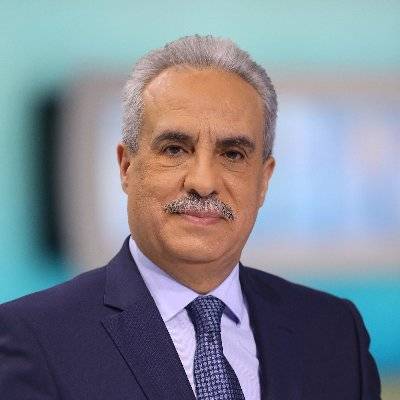In Lebanon, they have been waiting for six months; in Tunisia it’s three months. The Lebanese are waiting for a new government, while the Tunisians are waiting for eleven new ministers to assume their duties after being given parliament’s approval. Lebanon has not benefitted from a government, and Tunisia has not benefitted from its new ministers. The responsibility lies with the same office of state in both countries: the president.
If you speak to President Michel Aoun’s supporters in Lebanon and those aligned with him about this situation, they will give you details of the merits of his actions. If you speak to President Kais Saied’s supporters in Tunisia they will do likewise. The result is the same in both countries: an unnatural waiting period that has hindered state affairs and increased their weakness in the face of an economic crisis and critical healthcare situation due to the coronavirus pandemic.
Despite the importance of the arguments that Aoun’s and Saied’s supporters can present to justify their positions, we must look at the consequences. These confirm that what is happening in Lebanon and Tunisia is state paralysis that can only worsen the situation in both countries due to the stubbornness of two men who each think that they are the conscience of the nation and the most capable of finding the right solutions.
All states have their own laws and regulations, without which it is meaningless to use the word state to describe the institutions and structures that exist. When we say that a person is a statesman, we basically mean that this individual is characterised by awareness, prudence and broad-mindedness that makes them able, at certain critical moments, to distinguish between personal desires and the interests of the state. Not only this, but that this individual has the determination that allows them to resolve manners without hesitation in favour of the state, even if they suffer personally or appear to be the party backing down before their opponents.
READ: Is Tunisia’s democracy in danger?
So far, neither Aoun nor Saied seem to have such qualities, which suggests that matters may not make much progress in the immediate future, unless they come under international pressure that they cannot handle. If this happens — and nothing is certain — then the “concession” they will make will lose them any gains that they had made had they gone ahead on their own accord and in consideration of the greater good of the country, not because of foreign pressure that only makes the state more dependent on others and less in control of its own decisions. We must not forget, though, that there may also be foreign pressure in the other direction pushing Aoun and Saied to stand their ground for the benefit of who knows whom or what.
![Supporters of the Islamist Ennahdha party carry a placard which reads "The revolution is staying" during a demonstration in support of the Tunisian government on February 27, 2021 in the capital Tunis. [FETHI BELAID/AFP via Getty Images]](https://i0.wp.com/www.middleeastmonitor.com/wp-content/uploads/2021/04/GettyImages-1231411485.jpg?resize=933%2C622&ssl=1)
Supporters of the Islamist Ennahdha party carry a placard which reads “The revolution is staying” during a demonstration in support of the Tunisian government on February 27, 2021 in the capital Tunis. [FETHI BELAID/AFP via Getty Images]
The conclusion at the time was that despite the obstacles and sensitivities, political and state progress was made because the sense of the supremacy of the state, the spirit of the republic and the rule of law were what decided matters, not the whims of the individuals involved. Unfortunately, such a spirit exists in neither Lebanon nor Tunisia; it requires decades to establish and requires a different sort of individual.
Michel Aoun is a military officer who had a tumultuous short experience as head of a military government formed in the final moments of President Amin Gemayel’s term in September 1988 before he fled to France where he lived in exile for fifteen years. Returning to Lebanon in 2005, he became an MP. In 2016 he was endorsed by Hezbollah, among others, and became president, as he had always wanted.
As for Kais Saied, before the 2011 revolution he was not known for any political or organisational activity. He was not known for any opinion or activity in support of democracy or denouncing tyranny during the era of the late President Zine El Abidine Ben Ali. Saied found himself known thanks to his television appearances, before becoming a presidential candidate and then president so easily that some people are still trying to get to the bottom of how it happened.
During the rule of the late President Beji Caid Essebsi, Tunisia experienced a similar situation as that being faced now. Prime Minister Youssef Chahed, who also came from nowhere to take office, made a cabinet reshuffle, which the president did not approve of but did not block, despite his personal bitterness towards Chahed, who went from friend to foe, and despite some incitement to block the reshuffle. Essebsi exposed this incitement himself when he said that he couldn’t make such a move and that the interest of the state was above all else. The funny thing here is that Kais Saied, a citizen and professor of constitutional law at the time, supported him in this. Perhaps he has forgotten what happened then, but we haven’t.
READ: Lebanon’s President Aoun holds central bank responsible for crisis
This article first appeared in Arabic in Al-Quds Al-Arabi on 27 April 2021
The views expressed in this article belong to the author and do not necessarily reflect the editorial policy of Middle East Monitor.


 Lebanese President, Michel Aoun in Beirut, Lebanon on 21 October 2020 [Lebanese Presidency/Anadolu Agency]](https://i0.wp.com/www.middleeastmonitor.com/wp-content/uploads/2021/04/Kais-and-Aoun.jpg?fit=1199%2C800&ssl=1)









